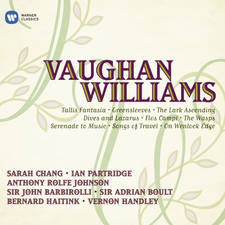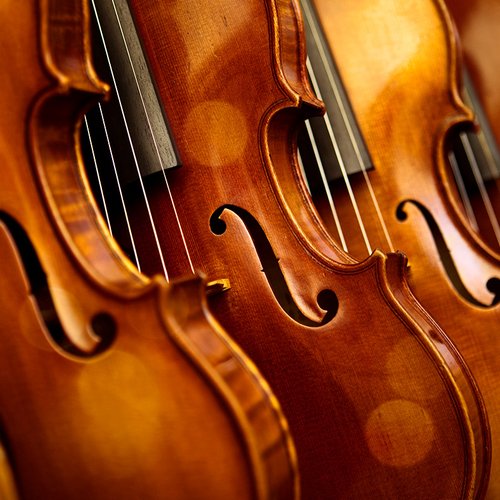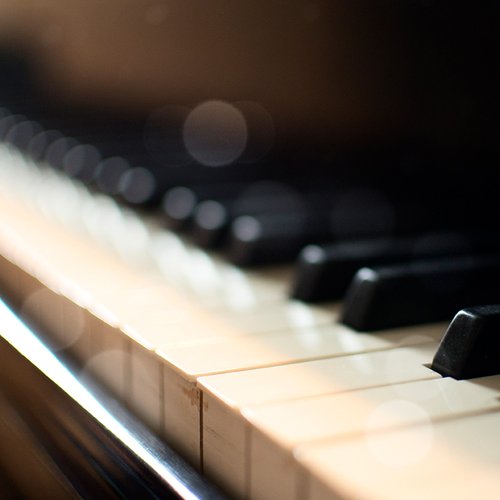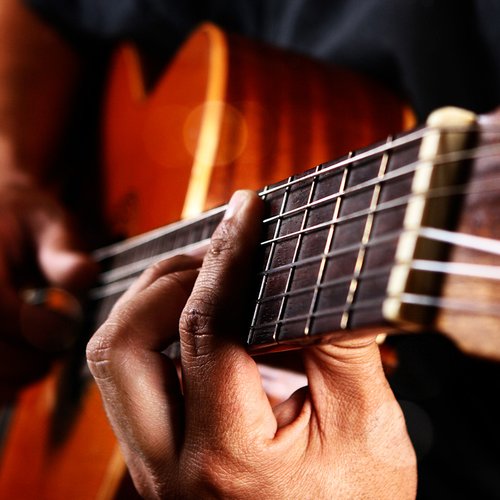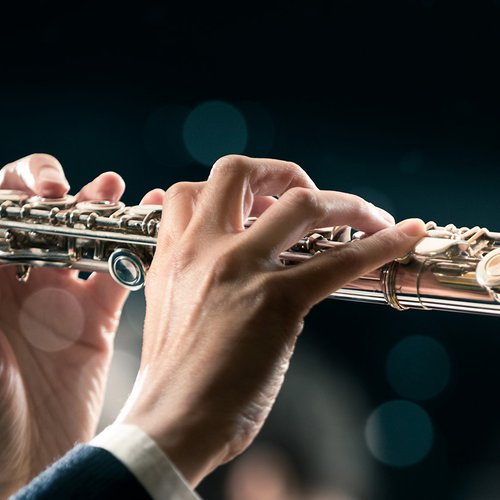10 most spectacular pieces of trumpet music
25 June 2024, 17:32

From Henry Purcell to Joseph Haydn, here are some of the best pieces of music ever written for the trumpet.
Listen to this article
The trumpet is one of our oldest instruments, dating back over 500 years, when it was used for signalling on battlefields and during hunting.
From this flared brass tube with just three valves can erupt the most spectacular and diverse array of timbres and pitches, and it has inspired countless composers and performers for centuries.
From Baroque masterpieces to contemporary greats, here are some of the best works written for the instrument.
Read more: Trumpeter uses actual fire to create mesmerising soundwave visualisation
-
Henry Purcell: Trumpet Sonata in D Major (1694)
English early Baroque composer Henry Purcell was a real master of the trumpet. His 1691 opera, King Arthur, contains some splendid moments for the trumpet, including the Trumpet Tune in its fifth act.
His Trumpet Sonata in D Major features a fanfare-like first movement with a graceful, optimistic main theme and, like many sonatas, has more slow middle movement before finishing in a flourish with a rapid finale.
Read more: What is a baroque or ‘natural’ trumpet – and how do you play it?

Purcell 'Trumpet Sonata in D Major'
-
Georg Philipp Telemann: Trumpet Concerto in D Major (1710s)
Baroque composer George Philipp Telemann wrote dozens of concertos for different instruments, including the Trumpet Concerto in D.
The piece opens with a sombre and dignified ‘Adagio’ slow movement, before erupting into a lively fast movement that puts the trumpet through its paces.
Ending with a slower movement again, the work is typically elegant and refined Telemann.
Read more: Star trumpeter Alison Balsom’s top five trumpet concertos

Telemann: Trumpet Concerto in D-major, TWV 51:D7 - Håkan Hardenberger & Amsterdam Sinfonietta - HD
-
Antonio Vivaldi: Concerto for Two Trumpets (1720s)
The beloved Four Seasons composer was a master of concertos for all instruments, including the violin, the flute, the oboe, the bassoon and the cello.
Vivaldi’s canon of 500 plus instrumental concertos didn’t include a single one for trumpet, until 1950 when an as-of-yet undiscovered manuscript was unearthed in Turin and published by Casa Ricordi in 1950.
The find was Vivaldi’s Concerto for Two Trumpets, a characteristically virtuosic and lively work by the Baroque composer.

Vivaldi, concerto for Two Trumpets in C, RV537 7'. Paul Merkelo with the English Chamber Orchestra
-
Joseph Haydn: Trumpet Concerto in E-flat Major (1796)
Classical composer Joseph Haydn’s concerto for the trumpet endures as one of the composer’s most popular works.
It was written for a trumpet virtuoso of Haydn’s day, Anton Weidinger, who had developed a unique instrument with keys, capable of playing all the notes in the chromatic scale. A step up from the typical trumpets of the time, which were restricted to playing only select notes within specific key signatures, Weidinger’s instrument inspired Haydn to write a blistering, complex work designed to really test the mettle of the new instrument.
Characterised by delicate fast-fingered passages contrasted by strident, sustained notes, the virtuosic work is still a favourite of trumpet players to this day, and it received a resurgence in popularity recently, thanks to the inclusion of its finale in the hit Netflix show Squid Game.

Alison Balsom, 'Haydn Trumpet Concerto in Eb, 1st mov.' (Allegro)
-
Johann Nepomuk Hummel: Trumpet Concerto in E Major (1803)
Another composer inspired by trumpeter Anton Weidinger and his innovative instrument was Johann Nepomuk Hummel, who composed his Trumpet Concerto in E Major in 1803.
Like Haydn’s Weidlinger-inspired work, Hummel was keen to use flashy cadenzas and memorable solo moments to show off the possibilities of the instrument, and his concerto remains a core part of the trumpet repertoire.
Hummel may have taken things too far: the concerto is so tricky that Weidlinger is likely to have altered passages to make them possible to play, and trumpeters today typically perform the work in E flat, to make it fit modern instruments more comfortably.
Hummel was a classical composer, and pupil of Haydn, Mozart and Salieri. He worked under Haydn at the estate of Nikolas II, Prince Esterházy, where he became Kapellmeister in 1809 when Haydn passed away.

Hummel - Trumpet Concerto in E flat major - Tina Horvat
-
George Enescu: Légende (1906)
In 1906, Late Romantic Romanian composer penned a sublime work for trumpet and piano, entitled Légende, for a Paris Conservatoire class.
It’s a wonderfully expressive and expressive work, displaying the colours and timbres characteristic of Enescu’s impressionistic writing.
A child prodigy, Enescu was admitted to the Vienna Conservatory of Music at the age of just seven, studying composition with composers Joseph Hellmesberger, Robert Fuchs, and Sigismund Bachrich.
He also studied at the Paris Conservatoire, and one of his teachers, the composer André Gedalge is known to have described Enescu as “the only one who truly had ideas and spirit”.
Iconic Spanish cellist Pablo Casals described Enescu as “the greatest musical phenomenon since Mozart”.

Alison Balsom records Enescu: 'Légende' for trumpet
-
Paul Hindemith: Sonata for Trumpet and Piano (1939)
Paul Hindemith was a German composer and viola player, working in the Neue Sachlichkeit, meaning New Objectivity, discipline of composition. His works harked back to Baroque and Classical structures while also exploring atonal soundworlds.
The Trumpet Sonata features three movements, including a powerfully moving final movement entitled Trauermusik, meaning ‘Music of Mourning’.

Glenn Gould - Hindemith, Sonata for Trumpet and Piano (OFFICIAL)
-
Henri Tomasi: Trumpet Concerto (1948)
If you’re looking for a rich, incredibly expressive and colourful trumpet concerto, the French conductor and composer Henri Tomasi’s work is the right way to go.
He composed his trumpet concerto, one of his most popular works, in 1948, and it was at first deemed “unplayable”. Plenty of trumpeters took this up as a challenge subsequently: Dutch trumpeter Jason Doets premiered the work with the Hilversum Radio Philharmonic Orchestra in 1948, and then trumpeters Ludovic Vaillant, Raymond Tournesac, and Maurice André all performed the work, the latter recording it.
“If the style of my Concert for Trumpet is classic by its three movements, the content is not,” the composer said of his work. “It is pure music. I tried to make a synthesis of all the expressive and technical possibilities of the trumpet, from Bach up to the present, including Jazz.”

Tomasi Concerto for Trumpet and Orchestra in C
-
Wynton Marsalis: Trumpet Concerto (2023)
American trumpeter and composer Wynton Marsalis’ concerto for his own instrument, premiered in 2023, is a monumental six-movement work that presents a montage of trumpet styles, techniques and genres from across the continents and across the ages.
It starts with a striking ‘elephant call’, something trumpeter Alison Blason describes as “incredible and unexpected” and something she’s “never been asked to do before on a trumpet”.
“It’s really hard to describe the styles and the traditions in the concerto, just because there are so many,” Balsom, who performed the work with Classic FM’s partner orchestra, the London Symphony Orchestra recently, says. It goes from ceremonial sounds, through all styles of music. “It’s an anthology of what the trumpet is capable of,” Balsom explains.
Read more: Trumpeter Wynton Marsalis on music and social upheaval: ‘Jazz teaches you to create the change’

Alison Balsom on the Trumpet Concerto of Wynton Marsalis
-
Kaija Saariaho: HUSH (2023)
Finnish composer Kaija Saariaho’s HUSH is an atmospheric piece for trumpet and orchestra, calling on extended techniques and unique timbres from soloist and orchestra alike.
Saariaho completed HUSH, a work she described as a “journey to silence”, during the final months of her life before she died with brain cancer. The piece is dedicated to Finnish jazz trumpeter Verneri Pohjola, and commissioned by the LA Philharmonic.
The trumpet whispers and growls as it glides downwards like a ghost among the other textures of the orchestra. Each movement has a programmatic title, adding to the introspective and meditative experience of the work: ‘Make the thin air sing’, ‘Dream of falling’, ‘What ails you?’ and ‘Ink the silence’.

Kaija Saariaho: HUSH (2023)
